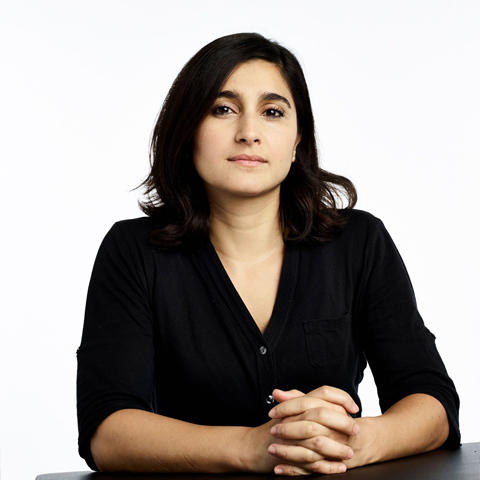Education
Ph.D. 2008, Theoretical and numerical study of homogeneous rotating turbulence, McGill University
Research
Focusing on the interface of fluid dynamics and epidemiology, the Bourouiba Group aims to elucidate the fundamental physical mechanisms shaping the transmission dynamics of pathogens in human, animal, and plant populations where drops, bubbles, multiphase and complex flows are at the core.
Key topics of research in the Fluid Dynamics of Disease Transmission Laboratory include:
Pathogen-Fluid Interaction:
- Interfacial flows: pathogen-fluid interactions in bubbles, drops and films
- Fluid fragmentation and droplet formation leading to air contamination
- Turbulence and multiphase flows
- Mixing, transport, and pathogen deposition and contamination
- Hydrodynamic instabilities and waves
- Viscoelastic and biological fluids
Health, Disease Transmission:
- Contact dynamics and pathogen transport
- Nosocomial diseases, respiratory diseases, waterborne diseases, and foliar diseases
- Disease transmission and contamination in indoor environments, including hospitals.
We use a combination of theoretical (applied mathematics, including differential equations, linear algebra, nonlinear dynamics, waves and stability) and experimental approaches (flow visualization, high speed imaging techniques, microscopy, image processing) to elucidate the fundamental physical mechanisms of transmission of nosocomial diseases, respiratory diseases, waterborne diseases, and foliar diseases where fluids are ubiquitous and to design and formulate new control strategies.
More on research here and publications here.
Awards and Honors
- 2023, G.K. Batchelor Lecturer at the University of Cambridge
- 2023, Paul Gray Award for Public Service: For her impact on the field of public health, specifically her contributions in mitigating the impact of SARS-CoV-2 on society.
- 2022, American Institute for Medical and Biological Engineering (AIMBE) Fellow: For groundbreaking contributions to our fundamental understanding of unsteady fluid fragmentation and its application to the spread of contagious diseases.
- 2021, American Physical Society (APS) Fellow: For fundamental work in quantitatively elucidating the mechanisms of droplet impact and fragmentation, and for pioneering a new field at the intersection of fluid dynamics and transmission of respiratory and foodborne pathogens, with clear and tangible contributions to public health.
- 2019 Ole Madsen Mentoring Award, in recognition of conspicuous contributions to inspiring, mentoring, and educating students, MIT
- 2018 Shimizu Professorship, Stanford University
- 2018 Smith Family Foundation Odyssey Award: For creative and innovative junior investigators working on high impact ideas to generate breakthroughs and drive new directions in biomedical research.
- 2014 Tse Cheuk Ng Tai’s Prize for Innovative Research in Health Sciences
- 2011 Sigma XI Full Membership award
Teaching
- Fluid dynamics and disease (1.0631-1.631/HST.537/2.250 at MIT)
- Nonlinear dynamics and turbulence (1.068-1.686/18.358/2.033 at MIT)
- Nonlinear dynamics II: continuum systems (1.062/18.354/12.207 at MIT)
- Multivariable calculus (18.02 at MIT)
- Differential equations (18.03 at MIT)
- Linear algebra (equivalent of 18.06 at MIT)
- Undergraduate seminars in physical applied mathematics (guest lecturer, 18.384 at MIT)
- Nonlinear dynamics I (guest lecturer, 18.353/2.050/12.006 at MIT)
More on teaching here.
